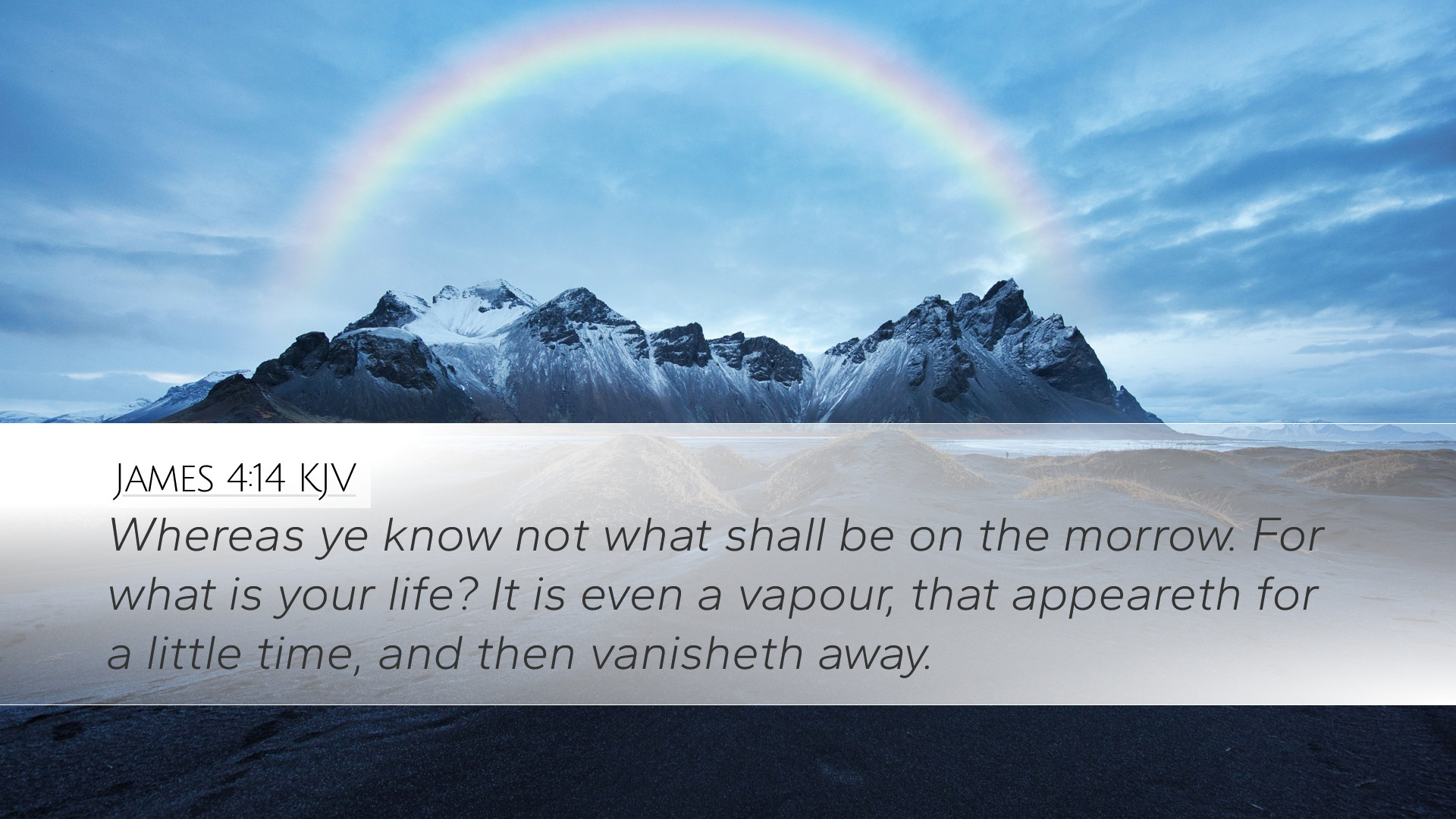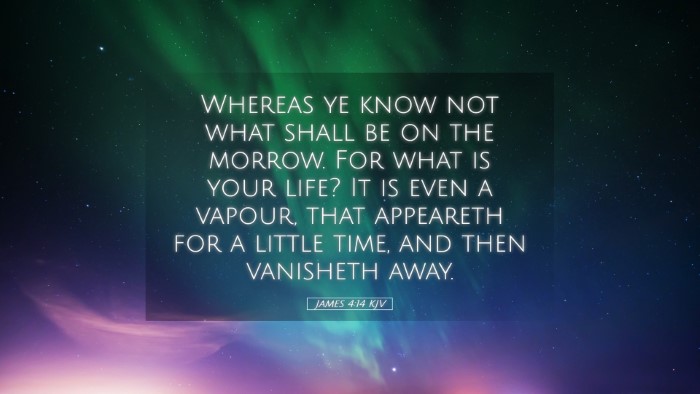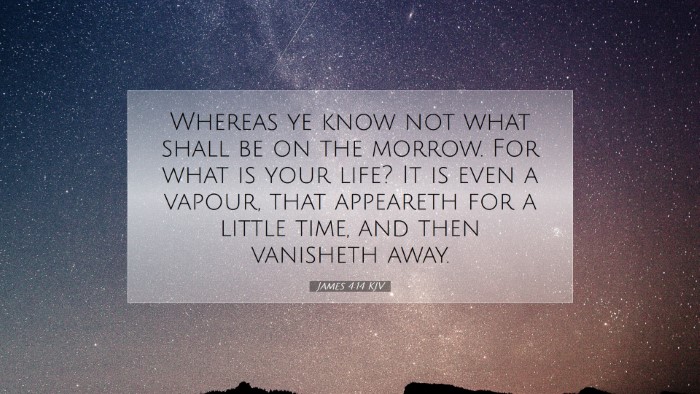Old Testament
Genesis Exodus Leviticus Numbers Deuteronomy Joshua Judges Ruth 1 Samuel 2 Samuel 1 Kings 2 Kings 1 Chronicles 2 Chronicles Ezra Nehemiah Esther Job Psalms Proverbs Ecclesiastes Song of Solomon Isaiah Jeremiah Lamentations Ezekiel Daniel Hosea Joel Amos Obadiah Jonah Micah Nahum Habakkuk Zephaniah Haggai Zechariah MalachiJames 4:14
James 4:14 KJV
Whereas ye know not what shall be on the morrow. For what is your life? It is even a vapour, that appeareth for a little time, and then vanisheth away.
James 4:14 Bible Commentary
Commentary on James 4:14
James 4:14: "Whereas ye know not what shall be on the morrow. For what is your life? It is even a vapour, that appeareth for a little time, and then vanisheth away."
Contextual Overview
In this epistle, James addresses the moral and ethical conduct of Christians, particularly focusing on faith put into action. He emphasizes the transient nature of life and the importance of humility before God.
Understanding the Text
The verse presents a stark reminder about the uncertainty of life and the brevity of human existence. According to historical commentaries, this passage reflects on the folly of assuming control over future events.
Meaning of 'Life as a Vapour'
- Matthew Henry: Henry emphasizes the fragility and insignificance of life compared to eternity. He notes that just as vapour quickly disappears, so do our lives.
- Albert Barnes: Barnes explains that the use of 'vapour' illustrates the fleeting nature of human life, warning believers not to presume upon the future, as life can change in an instant.
- Adam Clarke: Clarke further elaborates that human life is brief and uncertain, encouraging believers to seek the will of God in their daily activities rather than relying solely on personal plans.
Pastoral Reflections
This passage serves as a valuable tool for pastors as they guide their congregations through life’s uncertainties. It encourages humility, reliance on God, and a focus on living according to His will each day.
The Call to Humility
- Humility in Plans: Leaders in the church should teach the congregation to hold their plans loosely, recognizing that God ultimately directs our paths.
- Encouragement in Uncertainty: Pastors can use this verse to comfort those struggling with life’s unpredictability, reinforcing that God has control over all.
Theological Insights
Theologically, this verse underscores several key concepts:
- Divine Sovereignty: The acknowledgment that God is in control of the future, and human plans are submissive to His will.
- Human Dependence: A reminder that humans are dependent beings who should live aware of their limitations and the shortness of life.
- Mortality: The passage reflects on mortality, calling believers to consider how they spend their fleeting time in the light of eternity.
Applications for Believers
This verse provides a practical framework for believers to live wisely:
- Action in the Present: Instead of waiting for tomorrow to accomplish God’s will, believers are called to act today.
- Prayerful Dependence: Encouragement to pray for guidance rather than relying only on human wisdom to make plans.
- Living with Intention: Reminds believers to invest time in meaningful relationships and kingdom work, knowing life is brief.
Conclusion
James 4:14 serves as a critical reminder of the uncertainty of life and the need to rely on God’s will. As pastors, students, theologians, and scholars delve into this verse, they find profound truths that challenge the human tendency to boast about future plans.
In sum, the insights gained from various commentaries enrich our understanding, encouraging a lifestyle characterized by humility, prayer, and an acute awareness of life’s transient nature.


